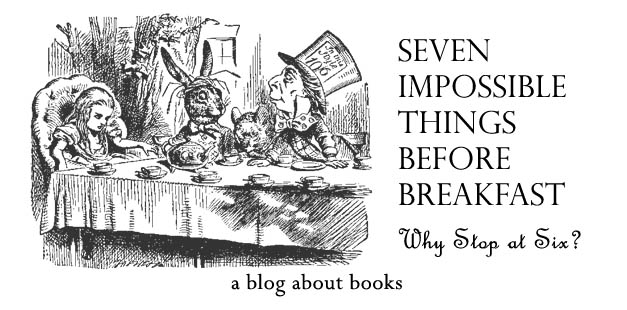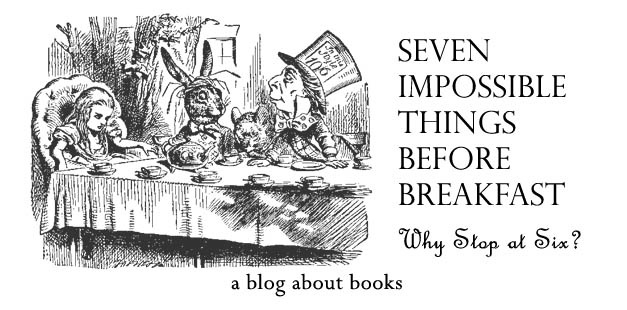
By Jules

“One morning, there was a big commotion on the boat. Gittel scrambled up on deck to see what all the excitement was about. ‘Look, look.’ Everyone pointed in the same direction as a great cheer arose. ‘There she is.’” (Click image to see spread in its entirety and to read the full text)
Let’s take a look today at Gittel’s Journey: An Ellis Island Story (Abrams, February 2019), written by the prolific author Lesléa Newman and illustrated by Amy June Bates. It’s the story of a young Jewish girl who plans to emigrate to America with her mother, yet has to take the trip across the ocean alone. It’s based on two true stories from the author’s own family—a story from her grandmother’s childhood, in which she (her Grandma Ruthie) emigrated in 1900 from what she called the “Old Country” to America, as well as a story from a childhood friend of the author’s mother.
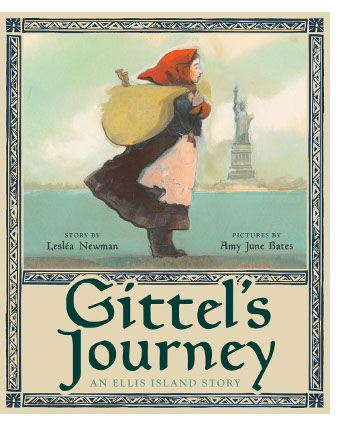 Gittel is reluctant to leave the home she loves, and the night before their journey she and her mother “gather in the Sabbath light,” sing a blessing, and dine together. The next day, as the girl and her mother attempt to board the ship to America, a nightmare unfolds for Gittel: a health inspector tells her mother she cannot board, due to an eye infection. Gittel’s mother implores her daughter to take the trip alone: “Home is not safe for us. You are going to America to have a better life.” She promises to join her daughter as soon as she can, and Gittel boards. “The ship was so big,” Newman writes, “it made Gittel feel very, very small.”
Gittel is reluctant to leave the home she loves, and the night before their journey she and her mother “gather in the Sabbath light,” sing a blessing, and dine together. The next day, as the girl and her mother attempt to board the ship to America, a nightmare unfolds for Gittel: a health inspector tells her mother she cannot board, due to an eye infection. Gittel’s mother implores her daughter to take the trip alone: “Home is not safe for us. You are going to America to have a better life.” She promises to join her daughter as soon as she can, and Gittel boards. “The ship was so big,” Newman writes, “it made Gittel feel very, very small.”
I won’t spoil the plot for you, but through the kindness of strangers, eventually Gittel and her mother reunite in America. The closing author’s note sheds more light on the true stories behind Gittel’s, as well as gives some historical context behind the plight of immigrants coming to America through Ellis Island between the end of the 19th century and the early to mid-20th century.
Newman tells this immigration story with tenderness and an eloquent lyricism. Bates’s lovingly-detailed watercolor illustrations capture well the time period and the inherent drama of Gittel’s journey. The intricate borders on each spread are beautiful. The title page spread alone is so lovely, I requested a copy of that, which you can see below — along with a few other spreads from the book.

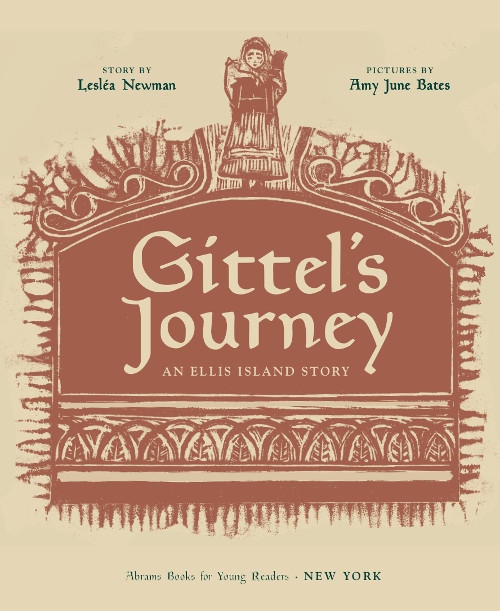
Title page spread (Click either image to see in its entirety)
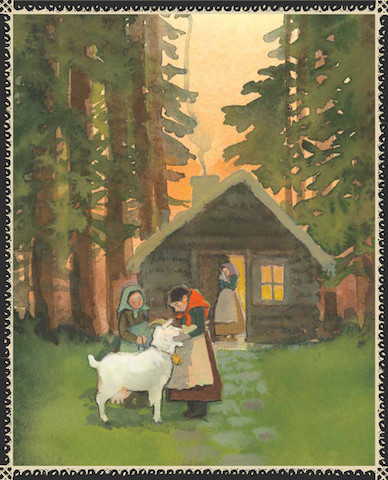
“‘No, Gittel,’ Mama replied …. ‘We cannot bring a goat to America.’” (Click image to see spread in its entirety and to read the full text)
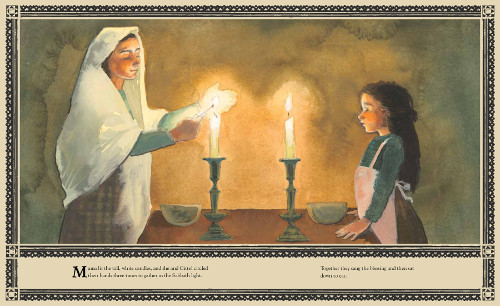
‘Mama lit the tall, white candles, and she and Gittel circled their hands three times to gather in the Sabbath light. Together they sang the blessing and then sat down to eat.’ (Click to enlarge)
GITTEL’S JOURNEY: AN ELLIS ISLAND STORY. Text copyright © 2019 by Lesléa Newman. Illustrations © 2019 by Amy June Bates and reproduced by permission of the publisher, Abrams Books for Youjng Readers, New York.
***
Hands Up
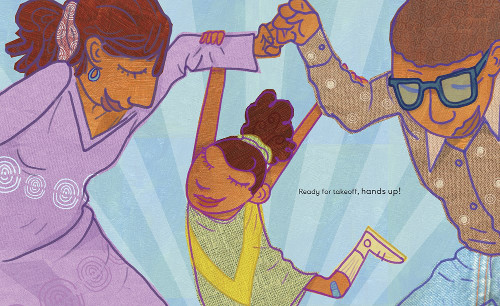
“Ready for takeoff, hands up!” (Click to enlarge spread)
“Hands up” is a phrase familiar to anyone paying attention to racial discrimination and the Black Lives Matter movement here in the U.S. In her debut picture book, Breanna J. McDaniel takes that phrase and turns it on its head. Hands Up! (Dial Books for Young Readers)—illustrated by Shane W. Evans and on shelves now—is about one young brown-skinned girl moving through her day and the many times she raises her hands for reasons of joy and family and community.
“Greet the sun, bold and bright! Tiny hands up!” the book opens. On each spread, the girl raises her hands—to stretch high, to be swung between her parents’ arms, to get the teacher’s attention in class, to sing a song of praise in her church, to take a shot on the basketball court, and much more. Evans infuses the book with light; there are vivid, exuberant yellows, reds, and oranges here, as well as warm greens and blues. It’s a palette that sings with cheer.
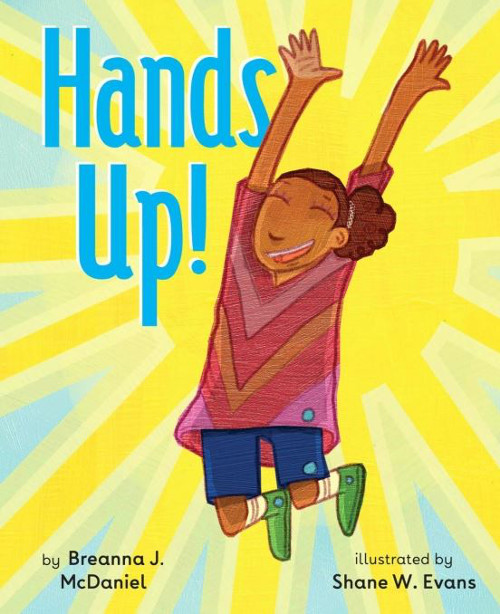
In a closing author’s note, McDaniel writes, in part:
For many people, the phrase “hands up” brings forward difficult emotions like anger, sadness, frustration and fear. With this story, I wanted to emphasize the ways I’ve experienced that phrase as part of my everyday life: at home, at play, in church, and at protests with young people leading the way. I want the world to remember that black kids are just that—kids, people with mammas and daddies and teachers and friends, with lives full of happiness and struggle and triumph and even sadness.
Then, speaking directly to child readers, she writes: “You matter. Your joy will be celebrated. Your struggles will be supported. Your love will be returned. You deserve to thrive.”
It’s a book that is a celebration of a black child’s everyday life, but it’s much more, as McDaniel’s closing note addresses. It’s an affirmation of self-worth and an empowering, energizing celebration of family and community.
Here are a couple more spreads.
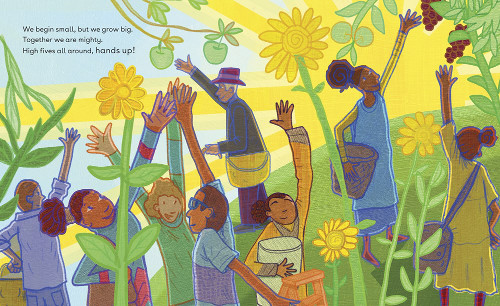
‘We begin small, but we grow big. Together we are mighty. High fives all around, hands up!’ (Click to enlarge spread)

‘As one we say, ‘HANDS UP!’’ (Click to enlarge spread)
HANDS UP! Copyright © 2019 by Breanna J. McDaniel. Illustrations © 2019 by Shane W. Evans and reproduced by permission of the publisher, Dial Books for Young Readers, New York.

Julie Davidson (Jules) conducts interviews and features of authors and illustrators at her acclaimed blog, Seven Impossible Things Before Breakfast, a children’s literature blog primarily focused on illustration and picture books. The above blogs were posted at 7-Imp on February 3, 2019 and January 30, 2019, respectively.

